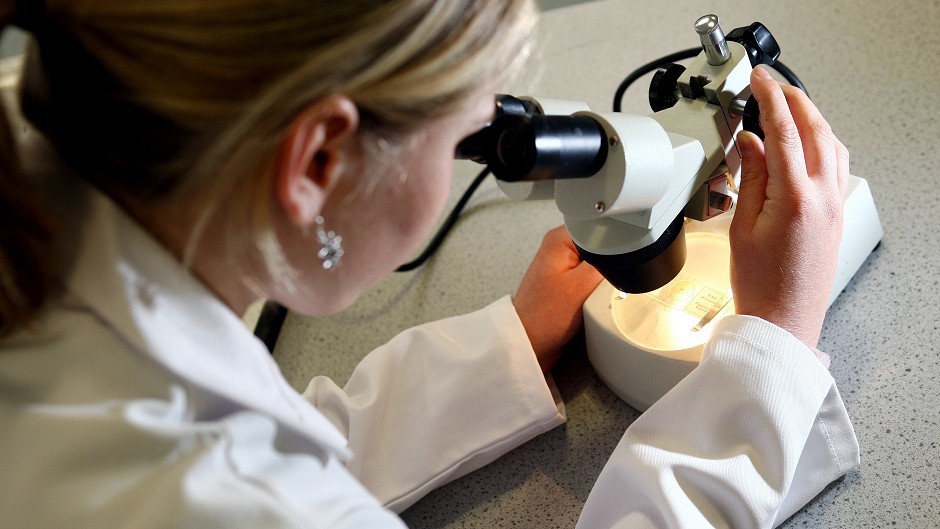A group of leading scientists from across Scotland is teaming up with a global animal health company to launch a global research centre to combat emerging infectious diseases.
The Centre of Excellence for Surveillance of Emerging Infectious Diseases in Europe is a collaboration between the Easter Bush Research Consortium (EBRC) and animal healthy company Zoetis.
EBRC comprises experts from the Royal Dick School of Veterinary Studies and The Roslin Institute at the University of Edinburgh, Scotland’s Rural College – SRUC, and the Moredun Research Institute.
The centre, which will be based at the Easter Bush Campus in Edinburgh, will track outbreaks of diseases such as tuberculosis and influenza in farm animals and household pets, as well as bacterial infections that can cause food poisoning if they enter the food chain.
Vets, scientists and technical specialists will team up to develop new diagnostic tools, vaccines and treatments to stop diseases form spreading.
Zoetis vet and senior vice president Michelle Haven said: “Enhanced surveillance to identify these threats early makes it possible to speed development of high quality, effective medicines and vaccines to help control these diseases.
“By working together, we can advance unique solutions to the evolving and complex threats of emerging infectious diseases in Europe.”
Roslin Institute director, Professor David Hume, said the consortium hoped to detect at a very early stage any new diseases appearing in Europe.
“By reaching out to our partners in Africa and Asia, we hope to identify potential threats, fully sequence the genetic material of the infectious agent very quickly and identify routes to develop diagnostics and therapeutics.”
According to SRUC vice principal, Professor Geoff Simm, there are already a number of potential disease threats across Europe, Africa and the Middle East.
“And with some 75% of emerging human infections originating from animals – including Ebola, Severe Acute Respiratory Syndrome (SARS) and avian influenza – it is vital that we monitor and manage new threats as soon as they begin to appear.”
